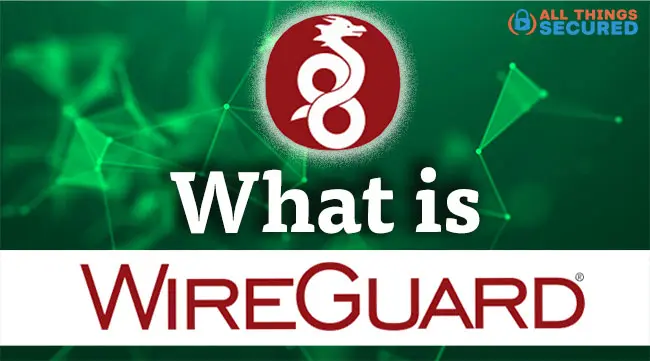Below you’ll find a comprehensive list, updated as of March 2026, of every commercial VPN that publicly offers the WireGuard protocol as a connection option. If you’re looking to use the fastest, most secure modern protocol, these are the virtual private networks you should be looking at.

Each month, it seems a new company announces that they have implemented WireGuard as a protocol option for their users.
Because the protocol has been developed as an open source project, it’s available for any and everybody to set up and use. That said, there are benefits (i.e. a global network of servers) that a commercial VPN offers.
We’ll start with a list of VPNs that offer WireGuard and then for those who need a refresher, we’ll review exactly what WireGuard is and why you might want it.
List of VPNs with WireGuard
The following VPNs offer WireGuard as a protocol option in 2026:
WireGuard VPNs as of March 2026
*These VPNs offer no other protocol except WireGuard
**Some (but not all) of these links are affiliate links, which means that at no extra cost to you, I may be compensated if you choose to use one of the services listed above.
It is expected that this list will grow exponentially over time and, within the next year or two, all VPNs will be using some form of WireGuard. More VPNs that support WireGuard will likely emerge, emphasizing its speed and security benefits.
The most notable service missing on this list is ExpressVPN, which has oddly decided to develop a competing proprietary protocol known as Lightway.
Which is the Best WireGuard VPN?
This is a tricky question, honestly. The VPN industry is very cut-throat and marketing is almost 100% affiliate-driven.
What this means is that I, as a publisher, am incentivized to promote the VPN that pays the highest commission.
It’s very dirty.
This is why you’ll find so many tech review sites promoting the same 3-4 services, since they get paid a crap-ton of money to do so.
So if I can take off my affiliate hat for a moment, what would I recommend as the best WireGuard VPN?
I’d probably go with:
Mullvad has a reputation as being one of best VPNs in terms of privacy and the fact that they own and run their server network is key to that.
However, I prefer the Surfshark apps, the unlimited simultaneous connections and the other unique features, including unlimited device connections that support WireGuard across all devices.
What is the WireGuard Protocol?

For those who need a refresher (since I’ve already described WireGuard in-depth here), WireGuard is a new open-source VPN protocol that has been developed using modern encryption algorithms and better connection methods.
The result is a much lighter code base that facilitates a more stable connection, faster speeds and better security.
Most virtual private networks have been relying on protocols that were developed a couple decades ago (OpenVPN, IKEv2, PPTP, etc.). The problem is that over these past couple decades, many of these protocols have been bloated with extra code to meet enterprise needs.
WireGuard is the only protocol in the past 10 years that has earned widespread acclaim and adoption. The reason for this is the ability to audit and test the open source code. Additionally, WireGuard uses a double NAT system that involves the creation of two local network interfaces for each user, ensuring secure connections while maintaining user anonymity.
WireGuard VPN Protocol and Privacy Concerns
The WireGuard VPN protocol is celebrated for its speed, security, and reliability, making it a popular choice over older protocols like OpenVPN. However, while it offers numerous advantages, there are some fundamental privacy concerns that users should be aware of.
Problem: WireGuard protocol and user IP addresses
One of the primary privacy concerns with the default WireGuard protocol is its handling of user IP addresses.
By default, WireGuard stores user IP addresses indefinitely.
This static IP address approach assigns a unique IP address to each user, which can potentially compromise user privacy. The risk here is that these IP addresses can be leaked, making it easier for third parties to track user activity. This is a significant concern for users who prioritize anonymity and privacy in their online activities.
Solution: Double NAT system for enhanced privacy
To mitigate the privacy issues associated with the default WireGuard protocol, some VPN providers have implemented a double NAT (Network Address Translation) system. This system creates two local network interfaces for each user, assigning a local IP address to all users connected to a server.
By doing so, the VPN server does not store individual user IP addresses, significantly enhancing user privacy. This approach ensures that even if the VPN server is compromised, user IP addresses remain protected, providing an additional layer of security for privacy-conscious users.
Choosing the Best WireGuard VPN Provider
With the growing popularity of WireGuard, choosing the best WireGuard VPN provider can be a daunting task. The market is flooded with options, each claiming to offer the best service. Here are some key factors to consider when selecting a WireGuard VPN provider:
Fully open-source WireGuard VPN providers
Transparency is crucial when it comes to VPN services. Opting for a provider that offers fully open-source clients and servers ensures that the code is available for auditing and testing by security experts. This transparency helps build trust and ensures that the provider is committed to maintaining high security standards. Some reputable fully open-source WireGuard VPN providers include Mullvad VPN, ProtonVPN, AirVPN, and OVPN. These providers not only support WireGuard but also allow for thorough scrutiny of their code, ensuring that there are no hidden security vulnerabilities. By choosing a fully open-source provider, you can be confident that your VPN connection is both secure and reliable.
Should I Use a VPN that Supports WireGuard?
As has been stated earlier, it is expected that most commercial VPN services will adopt the WireGuard protocol over the next year or two (although some will develop their own, such as ExpressVPN’s Lightway protocol).
Using OpenVPN or IKEv2 is not a bad thing. Your data will still be encrypted. These vpn protocols can cover all your devices particularly if you configure a VPN on your WiFi router.
However, during my tests, I was consistently shocked by how much faster the WireGuard protocol would make the initial server connection. Not only that, but the connection remained extremely stable, even when I moved between WiFi and cellular network connections. WireGuard TCP, although not natively supported, has implications for users needing reliable data transmission.
So the benefit here is that you should experience faster speeds and stronger connections using WireGuard.
Is that enough to choose a VPN service based on its implementation of WireGuard?
Maybe.
That’s entirely up to you and what your needs are. But since it doesn’t cost you anything extra and the benefits are certainly there, I guess the better question would be…
…why not?
WireGuard VPNs offer significant performance improvements and enhanced security, making them a preferred option for users seeking reliable VPN solutions.



